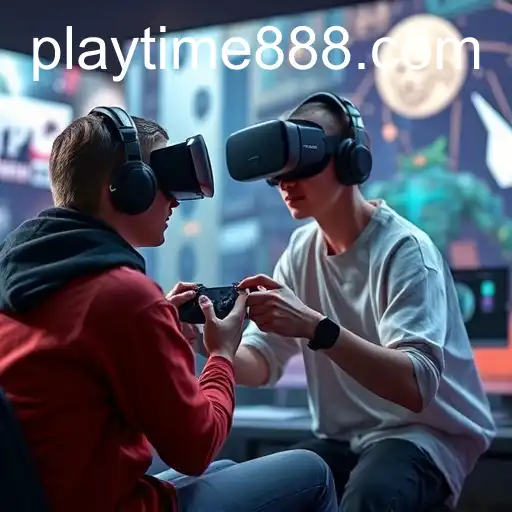
The Evolving Landscape of Game Playtime

In 2025, the landscape of game playtime continues to evolve rapidly, influenced by technological advancements and changing player habits. With the emergence of new gaming platforms and immersive technologies, players now engage in games differently, prompting a reevaluation of what constitutes a meaningful playtime experience.
As technology advances, so too does the quality of gaming experiences available to players. In particular, the adoption of virtual reality (VR) and augmented reality (AR) systems has provided players with unprecedented interaction opportunities, allowing them to lose themselves in expansive virtual worlds. This shift has had a considerable impact on average playtime, as players are drawn into these environments for extended periods. Moreover, the integration of AI-driven narratives offers a dynamic twist that keeps players engaged through adaptive storylines.
Current reports highlight a noticeable trend: while the average session length for players has increased, the frequency of play sessions per week has seen a relative decline. This suggests that players now prioritize in-depth, immersive sessions rather than frequent, shorter engagements. Analysts attribute this shift to an increase in narrative depth and technological enhancements that make longer sessions more rewarding.
Another significant factor influencing playtime patterns is the ongoing rise of live service games, which constantly update content to engage players beyond the standard campaign. As developers aim to keep players invested through seasonal events and updates, gaming companies are exemplifying a service-oriented approach, creating vibrant communal experiences that encourage extended playtime.
In the broader context of online engagement, experts suggest that the Crossover Effect, where gaming trends influence other forms of entertainment and vice versa, is playing a substantial role. Streaming platforms remain a key catalyst, providing a venue where games double as content and social experience, thus reshaping the overall playtime dynamic as a mixture of playing and watching becomes standard for many gamers.
As the year progresses, it becomes increasingly clear that the dynamics of game playtime are more than just a matter of hours spent in front of a screen. They reflect wider cultural trends and technological innovations that are reshaping how and why we play games, making the act of gaming a complex interplay between technology, preference, and entertainment.
The Evolution of Gaming in 2025
Exploring how the gaming industry has evolved with new technologies and societal changes in 2025.
The Evolution of Game Playtime in 2025
Exploring the latest trends and discussions around game playtime in 2025, with a focus on industry changes and player dynamics.
Evolving Dynamics of Virtual World Engagement
Exploring the multifaceted landscape of gaming in 2026, from technological advancements to community impact.
 Skip to content
Skip to content





